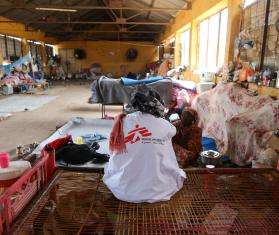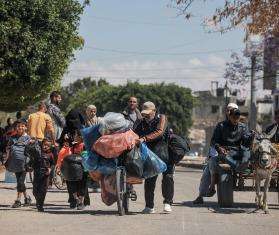The international medical humanitarian organization Doctors Without Borders/Médecins Sans Frontières (MSF) is providing comprehensive medical care to people affected by Hurricanes Eta and Iota, which have battered Honduras in recent weeks.
As of November 25, an estimated 89,335 people are in shelters and 399,062 have been evacuated from their homes. Almost a third of the country's population has been affected by this emergency, most of them in Cortes department.
MSF teams are working in Choloma, in Cortes department, where around half of the health centers have either closed or have had their services disrupted due to the hurricanes.
Since November 3, MSF has provided medical services, psychological care, and health promotion activities in shelters and other locations, reaching approximately 14,800 people. MSF has also distributed 545 hygiene kits, COVID-19 prevention kits, and water.
“The rain continues,” said Juan Carlos Arteaga, MSF project coordinator in Choloma. “Affected communities do not have access to health services due to damage to health facilities or blocked roads. This emergency poses major challenges for the people of Honduras, for the authorities, and for nongovernmental organizations here.”
As of November 24, MSF teams have provided 1,234 medical consultations, mainly treating respiratory and skin infections. In addition, MSF has conducted 140 group mental health sessions and 58 individual consultations addressing grief, loss, stress management, and the prevention of sexual violence. Counselors take special care to consider the potential risks and vulnerabilities of individuals who need support.
“We coordinate with other organizations and municipal committees to prioritize assistance and not duplicate efforts,” said Arteaga. “Since day one of the emergency, MSF has been working to reach the communities that need help the most, especially in areas where no one has yet arrived with any kind of medical or mental health assistance.”




